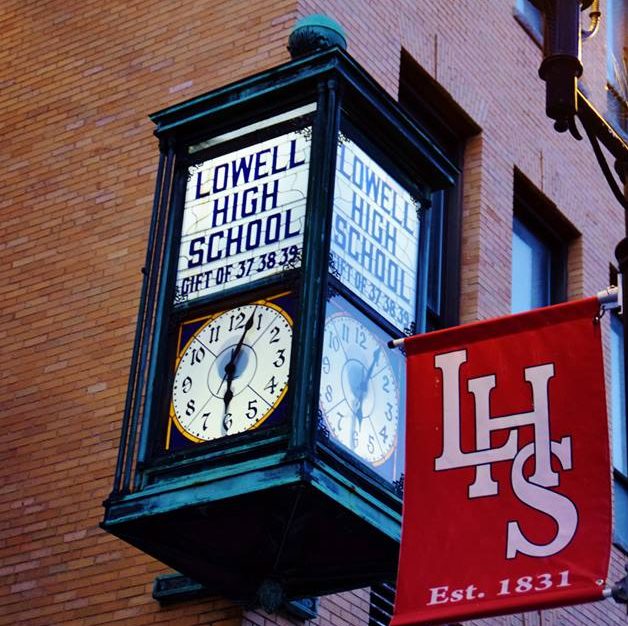The Board of Directors of the Lowell Heritage Partnership (LHP) voted unanimously (two abstentions) on March 23, 2017, to renew and keep Lowell High School downtown, citing it as “an opportunity to ensure that our heritage is preserved as a defining part of the learning experience of Lowell youth.”
The LHP believes the community’s public interest is best met by a downtown high school designed and equipped for the 21st-century that extends its educational legacy, respects distinctive natural and built environments, and values our culture. Further, the access to other important support resources such as Pollard Memorial Library, UMass Lowell, Middlesex Community College, Boys and Girls Club, Girl’s Inc., UTEC, and the like is an advantage that cannot be replicated in a suburban-type location.
“In discussing this issue, we considered our role, most recently in promoting the vitality of the historic downtown,” said Paul Marion, LHP President. “Two of Lowell’s greatest proponents and visionaries were mentioned in the board’s discussion, the late Dr. Patrick Mogan and U.S. Senator Paul Tsongas.”
The LHP statement continued as follows:
Senator Tsongas, a Lowell High alumnus, fought tirelessly for a national park that would create a better future based on unique historical and cultural assets. These assets are concentrated in downtown Lowell, which we believe can be enhanced further by a renewed Lowell High School. Senator Tsongas saw Lowell’s potential to become “the best middle-sized city in America,” which must include the betterment of all populations and communities.
As Superintendent of Schools and chief strategist for the urban park concept, Dr. Mogan imagined Lowell as a lifelong learning laboratory with place-based, experiential educational methods. Recollections of those who worked with him show Dr. Mogan as an advocate for a robust Lowell High School in the heart of the city.
“Of the challenges facing Lowell in the 1960s and early ‘70s, Dr. Mogan wrote: “There appeared to be a complete disassociation between the present and the past. This was very serious, for scholars had been saying for a long time that people need ‘roots’ and a positive sense of being as prime ingredients for development.” Students at the time lagged in educational achievement. He and other teachers believed the lack of a positive sense of self was a barrier to student success.
Taking the high school out of a stimulating social and cultural location can only provoke the kind of “disassociation” or alienation that Dr. Mogan described. Generic surroundings do not reinforce identity.
The LHP’s recent investment in the Waterways Vitality action plan motivates the board to advocate for a renewed downtown Lowell High School. With partners in City Hall, the national park, and private and nonprofit sectors, momentum is building to enhance our waterways with lights and events. Given this effort, the LHP cannot support moving a major public institution from the area near Lucy Larcom Park and the Merrimack Canal, where students can enjoy a unique and rich urban environment. Today, walkable cities rich with activities are embraced nationally as responsible, sustainable, and economically robust.
The idea that we cannot successfully renew this property is contrary to Lowell’s nationally recognized track record of success. In the past 40 years, we have converted five million square feet of mills and commercial properties to productive work spaces, appealing residences, and cultural attractions. In each case, safety and environmental issues were resolved. The quality of this work has been recognized by national awards and by numerous visitors from places striving for similar success.
In its distinctive place and with outstanding leadership and teaching professionals and wonderful young people, Lowell High has launched generations of students into successful orbits. Its alumni Hall of Fame rivals any high school’s story. Lowell High is a world-class contributor to our community and the country.
We believe that the high school debate is a turning point for Lowell and its future. Much as our community regrets the 1960s demolition of the Dutton Street boarding houses as short-sighted and poorly planned urban renewal policy, we urge the community not to diminish and abandon by neglect an important part of Lowell, its downtown high school.

